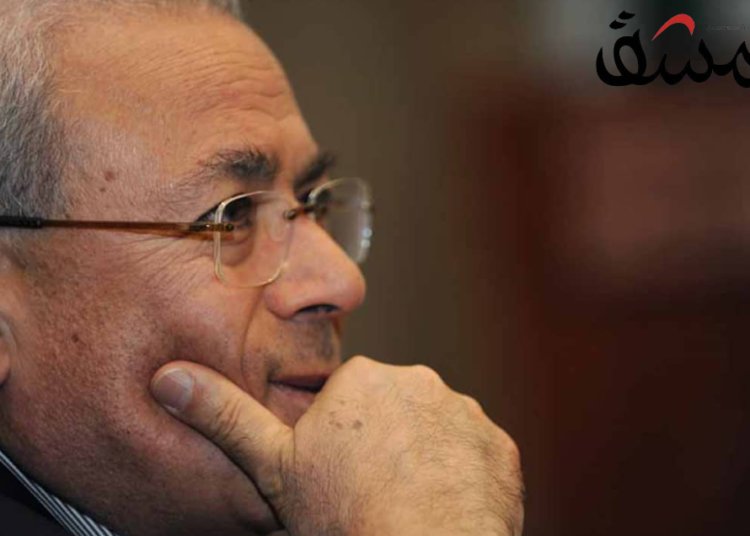Dr. Burhan Ghalioun
Ein wiederhergestellter Artikel, veröffentlicht im Jahr 2018
Quelle: Die Website des Denkers Dr. Burhan Ghali oun
Despite nearly thirty years since its implementation, Tehran’s policies have failed to achieve any of their strategic goals. They did not lift the isolation imposed on Iran by the West, nor did they remove the sanctions that still burden the country without a clear path to relief. Furthermore, these policies did not curb Israel’s aggression or its refusal to acknowledge Palestinian rights. Iran has not become the central Islamic state, nor has it solidified its regional dominance; instead, its isolation has increased, and it has alienated many Arab and regional countries fearful of its disruptive actions. Its large military program and expansionist strategy did not enhance its national security or protect it from popular uprisings; rather, they have unleashed a regional crisis and long, fierce civil wars that will inevitably spill over into Iran itself. The policy of exporting the “Islamic” revolution has not eradicated oppressive regimes or liberated the Arab and Islamic peoples from widespread tyranny; instead, it has thwarted the tremendous efforts these peoples have made to rid themselves of their tyrants, particularly the allied ruler of Syria, and has plunged the entire region into a historically multifaceted crisis with no visible end in sight.
(1)
Whether consciously or unconsciously, the final outcome of Iran’s Khomeini-era foreign policies has been the dismantling of all regional balances—religious, cultural, political, strategic, and economic—and the most extensive destruction witnessed in the region: first, the destruction of the fabric of its national communities; second, the destruction of its states and the undermining of their civil and legal structures; third, the destruction of the historical relationships among its peoples; fourth, the destruction of its image and cultural, religious, and political capital in the eyes of global public opinion and the international community, exposing it to all doubts and corrupt accusations; and fifth, the destruction of its civilization, cities, and villages, and the displacement of its peoples in both material and moral senses. Tehran and its sectarian militias have played a direct and significant role in this process.
This occurred simply because the clerical regime, with its papal and imperial structure, instead of working to absorb tensions and divisions, calming fears about the consequences of the great Iranian popular revolution, developing regional cooperation, and seeking to build Arab-Islamic understanding against Western and Russian colonial hegemony, and containing Israel’s domination and bullying of the region, sought to compete with the West and Tel Aviv for dominance and sovereignty. It positioned itself as a rival to the United States and Israel and decided to recklessly chase the illusion of establishing an Iranian imperial caliphate over the ruins of weak Arab countries and peoples.
Iran believed it could achieve this only by concentrating all its efforts and the resources of its people on developing the most costly, dangerous, and threatening strategic weaponry, financing destructive militias in every country where it found a foothold, and infiltrating the Arab political and social systems to tighten the noose around them, hoping this would enable it to control them and direct their human and material resources to achieve its expansionist goals. It did not hesitate to ignite the flames of a sectarian war—between Sunnis and Shiites—across the region, a conflict that past generations of Eastern peoples have made strenuous efforts to extinguish.
However, it failed to transform itself, as it had hoped, into the main formidable power in its region, nor did it become, due to its military influence and threats, the preferred axis for the West and the international community concerning the entire region. Because it used its power and resources for negative purposes, it became, on the contrary, the bogeyman that instills fear in the hearts of Eastern peoples and their states, fueling Western anxieties over its interests and over stability and peace in one of the most volatile regions in the world. With its focus on escalating conflicts, igniting wars, and exporting chaos, Tehran has now made this its main commodity in dealing with countries in the region and the world. It is now inevitably on the verge of paying the costs of the disasters it has caused in multiple states and locations.
If you need any adjustments or further assistance, let me know!
(2)
The first of these disasters pertains to the Palestinian issue, which Tehran has made the defense of, or rather its adoption of, a hallmark of its expansionist policy and a source of legitimacy for its repeated incursions into the territories of those who should be defending their rights and independence. Iran’s policy in this area has not helped strengthen the position of the Palestinian people; rather, it has turned into a substantive complicity with Tel Aviv in dividing the Palestinian national movement, fracturing its ranks, and distorting its authority between “quasi-states” in the West Bank and Gaza Strip, transforming the latter into the largest ghetto and a ground of misery and political and moral, and sometimes material, death for the two million Palestinians who reside there.
The destruction of Palestinian national unity, along with the crises and internal conflicts that have accompanied it and continue to do so, has provided Israel with the greatest pretext to evade the agenda of the supposed international negotiations for the establishment of the anticipated Palestinian state. It has allowed Tel Aviv to continue, without fear of any political or military pressure, whether regional or international, to develop settlement projects and expand the area of occupation, despite the rising tone of resistance in Tehran, Beirut, and allied militias.
As for the impact of this resistance policy on the status of the Palestinian issue on the international stage, it is not an exaggeration to say that Israel has not enjoyed the comprehensive and blind patronage from the West that it has today, nor has the world embraced it or tolerated its settlement projects and racist practices as it has in recent years. Thus, Washington’s recent recognition of Jerusalem as the “eternal” capital of Israel and the relocation of its embassy there—contrary to all international resolutions concerning occupation—did not provoke any significant Arab, Islamic, or international reaction, nor did it even arouse the anger of the Arab street or mobilize its parties and organizations, let alone the positions of Western capitals. The wars, conflicts, fears, and rivers of blood shed by Tehran’s militias and maneuvers throughout the countries of the Levant have diverted the attention of the entire world from the issues and rights of the communities, foremost among them the Palestinian cause, to the point that there remains no window to view the region’s crises and tragedies except from a humanitarian perspective, which is primarily concerned with finding solutions and remedies for the tragic consequences of Iranian proxy wars.
The “option of resistance,” nor the axis that has crystallized around it, which has placed the Assad regime—murderer of its own people—at its core, has deterred Israel or weakened its strategic position in the slightest. On the contrary, it has helped Israel break its political isolation and provided it with the conditions to rise and bloom into a powerful and recognized regional force. Today, it can freely navigate its aircraft in the airspaces of Arab and Iranian sovereignty as it pleases, flex its muscles, and wage its own war against Iran itself on Syrian soil, against Iranian bases and militias, without fearing any Iranian countermeasures or ballistic missiles of any kind, nor does anyone dare, especially Tehran, to challenge it, or even acknowledge the losses and collapses it suffers as a result of its airstrikes.
The Syrian catastrophe is no less significant than the disaster of destroying and undermining the Palestinian cause, if not exponentially greater. It is one of many other catastrophic situations, the effects of which are still manifesting in Iraq, Yemen, and elsewhere. It is clear to everyone that Tehran’s intervention in Syria came to save the Assad regime from falling before a peaceful and civilian popular revolution that was more than just. This regime is one that Iranians do not cease to speak about in private meetings, often highlighting its deep corruption, political delusion, foolishness, and disregard for all interests, values, principles, and laws. It is indeed so, as is the case with any other criminal gang, with the difference that we are dealing here with a gang that controls an entire state apparatus.
No one can deny either that this multifaceted Iranian intervention to preserve a regime of genocide was the main reason for the situation Syria has reached today: the dissolution of the state, the entrenchment of sectarian militias, the intervention of foreign armies, and the proliferation of terrorist organizations, at a time when Iran should have been betting on the strength of Syria and developing its military and popular capabilities in preparation for any potential confrontation with Israel. Iranian leaders have not concealed that the goal of this intervention is to build a Shiite imperial crescent extending from Qom in eastern Iran to the Mediterranean coast, and they are prepared to fight to the last Syrian, Iraqi, Afghan, and, when necessary, Iranian to achieve this grand historical dream.
(3)
As a result, today the situation is dire: the near-total destruction of Syria, its state, people, and civilization, the displacement of its people both internally and externally, and the frantic attempt to remap its demographics in favor of new settlers from the ranks of foreign militias and non-Syrian displaced persons, ensuring that the new conqueror guarantees the impossibility of the return of its original inhabitants, and thus final control over it, monopolizing the determination of its fate. In pursuit of this, Tehran has not stopped inserting its experts, advisors, and agents into Syrian state institutions and controlling them from within, reinforcing its political presence by establishing dozens of military bases in strategically sensitive areas that ensure its control over the country and strong grip on it, hindering any political exit from the war, or any prospect for a return to normal life, today and in the future, unless it aligns with its agenda of regional and religious hegemony and respects its expansionist interests.
However, Tehran has reached the hour of truth today. It faces the complete collapse of its project and realizes that it has fallen into the trap it created with its own hands and set for others. It finds itself in the position of a thief caught red-handed at the moment he attempted to leave with his entire loot under the cover of darkness, believing that no one would see him. The main countries involved in dividing the Syrian spoils that Iran has preyed upon agree among themselves to remove Tehran alone without any bounty and see expelling it from Syria as the only path to ending the brutal war that Tehran has been the main inciter of since the beginning until today, and for which it sees no resolution that satisfies its ambitions without its continuation.
It is a bitter irony of fate that the choice to destroy military bases and eliminate Iranian influence in Syria today falls upon Israel itself, which Tehran has made the resistance to its arrogance and policies in the region a racehorse to win the sympathy and support of the Iranian and Arab masses, just as it built its expansionist doctrine and the legitimacy of its wars in Arab lands upon the apparent challenge to its vanity and mockery of it.
The outcomes of the Wilayat al-Faqih policy toward the Arabian Gulf region, where Tehran has always aspired to play the role of the policeman, both before and after Khomeini, are no less catastrophic than the results in previous examples. Instead of Tehran’s continuous and intensive military, security, sectarian, and political pressures urging Gulf governments to submit to it and cooperate with it, or encouraging the West, as was the case during the reign of the deposed Shah, to soften its stance toward Tehran, or to reach an understanding with it as it hoped to secure its regional interests therein, it has instead instilled terror within them and pushed them to do the exact opposite of what Tehran sought to achieve. It has encouraged them to go where no Arab had ever thought of going or even contemplating: betting on Israel to balance Iranian power and confront the encroachment of the Revolutionary Guards and the dangers of its aggression. I believe that the only thing preventing some Gulf states from openly joining this alliance against Iran is their fear of popular reactions and provoking public opinion, which does not trust Israeli intentions more than it trusted those of Khomeini’s Tehran, and instinctively understands the inherent and enduring animosity that Israel and its settlement and colonial project harbor toward the rights of Arab peoples, foremost among them their right to freedom and liberation from their tyrants.
Thus, Khomeini’s Iran has opened the door to the rise of an era of Israeli regional hegemony that is preparing itself to replace the Iranian era, from which Arabs, Iranians, and all the peoples of the region will remember nothing but the explosion of proxy wars and their management, the destruction of states, the draining of societies, and the ease of killing and spilling blood.
The Arab public opinion does not err when it links Israel to the persistence of the oppressive regimes and state terrorism prevailing in its countries. It is aware that there is no possibility that the decline of the Iranian era in favor of an Israeli hegemony will change anything in the current harsh conditions or provide a way out of the existing disasters and witness the birth of more security and peace in this damned region. Israel will continue, emerging victorious from the ruins of the Iranian Islamic empire dream, just as it emerged victorious from the ruins of the Arab League states and their “national” unity, but with greater enthusiasm and strength, in its settlement policy and its complete roadblock to any embodiment of Palestinian authority in any state, however incomplete. It will continue, despite its overwhelming military superiority and comprehensive control with its Western allies, in a policy of weakening Arab states and dismantling their societies from within, continuing what Tehran has done, albeit not necessarily through less primitive and blatant means. From now on, Tel Aviv is seeking to obtain Washington’s recognition of its annexation of the Golan Heights and to share control with it over southern Syria, determining its future: a neutral area prohibited for any military presence that does not comply with its approval.
The scene of the strategic, political, and moral collapse of both the Arab and Islamic worlds and the evaporation of the last chapters of the Iranian imperial dream will not diminish Israel’s sense of superiority and right to control and dominate the











